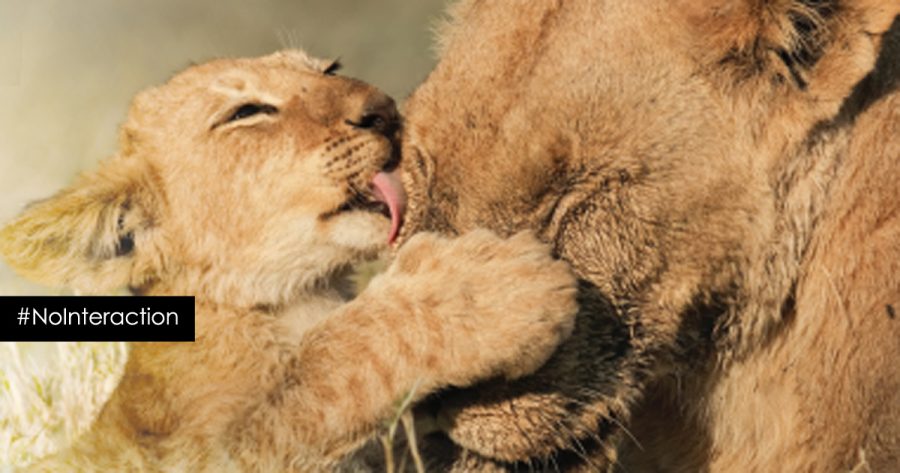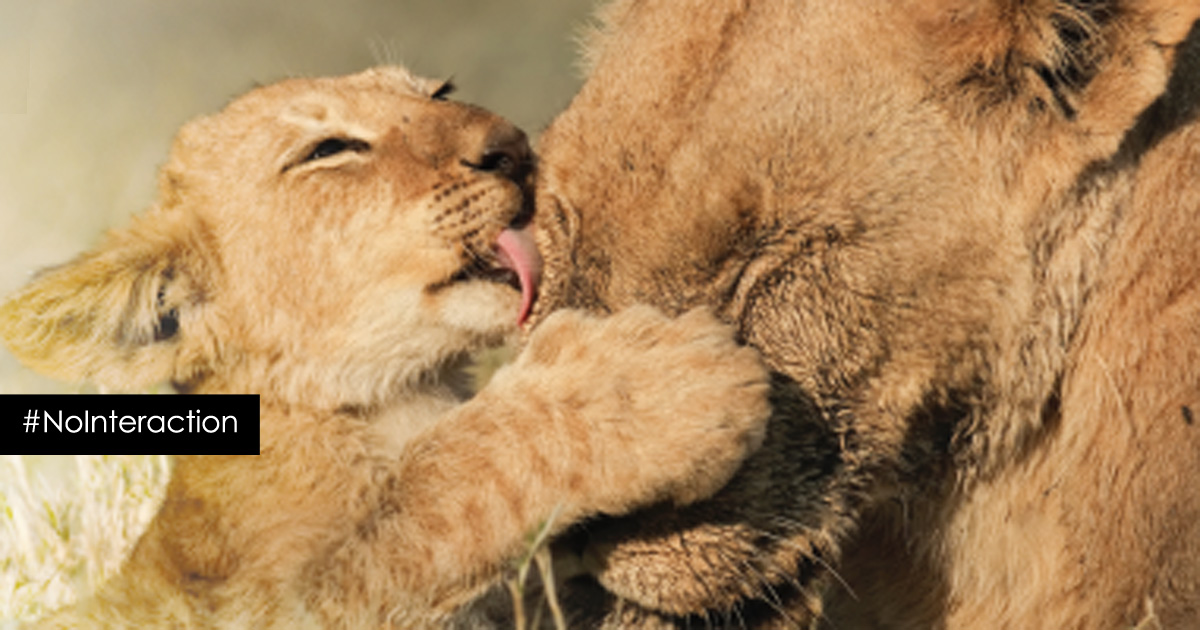
Rhino and Lion Reserve in South Africa Will No Longer Offer Cub Petting
In fantastic news for wildlife conservationists – and for rhinos and lions – the Rhino and Lion Nature Reserve in the Cradle of Humankind, South Africa, announced today that it will no longer be offering cub petting to the public, with immediate effect. The Reserve has been popular with local and international tourists for 30 years […]

In fantastic news for wildlife conservationists – and for rhinos and lions – the Rhino and Lion Nature Reserve in the Cradle of Humankind, South Africa, announced today that it will no longer be offering cub petting to the public, with immediate effect.

The Reserve has been popular with local and international tourists for 30 years with petting having been available in the past, but times have changed the Reserve said in a media statement on Monday.
Under the new ownership of the Bothongo Group the reserve is refocusing its efforts on animal welfare.
“As new owners, we have acknowledged that what was acceptable in 1990 when the reserve first opened to the public, may no longer be acceptable in 2019,” says Jessica Khupe, Rhino and Lion Nature Reserve Brand Manager.
“Human beings have always wanted to get up close and personal with wild animals,” says Khupe.
“Understandable as this is, studies have shown that it is not good for animal welfare. Recent campaigns (like the Blood Lions film) have highlighted the global problem of cub petting and unscrupulous operators both locally and abroad. Simply put, it is not necessary to touch an animal to connect with the importance of wildlife conservation.
“We’d also like to make it very clear that we are utterly opposed to the abhorrent canned hunting and lion bone trade.”
Recently appointed Chief Operations Officer of the reserve, Mike Fynn, explains: “Breeding and rearing animals for the purpose of cub petting and interaction is not only undesirable from an animal welfare perspective, it’s also not a sustainable business model.
“From now on, we will focus on educating the public about wildlife and the importance of conservation. This is why, with immediate effect, we choose to put a stop to cub petting at the Rhino and Lion Nature Reserve and sincerely hope that other facilities responsibly follow suit.”
Over the past few months, the new owners have initiated a three-year plan to upgrade all of its public facilities, habitats and wildlife enclosures, which will be remodelled around the welfare and wellbeing of its animals. Many of them are species that are endangered thanks to human activity and habitat loss.
According to Fynn the reserve team will dedicate themselves to a new internal mantra of being a ‘nurture reserve’.
In addition, he says they will commit to the following:
- To maintain a healthy, genetically diverse and contented animal collection, and work with local and international institutions and bodies ensuring that the reserve plays its part in managing the long-term survival of endangered and threatened species.
- Not to sell or exchange any of the reserve’s animal family, especially its lions, unless it’s to a reputable accredited facility and/or licensed wildlife institution.
- To breed animals only if this serves a conservation purpose.
“To those of our visitors who are disappointed that they can no longer cuddle a lion cub at our reserve: this is the right thing to do,” says Khupe.
To those of our visitors who are disappointed that they can no longer cuddle a lion cub at our reserve: this is the right thing to do
“As animal lovers, we understand how charismatic African wildlife is. But the truth is that our love for our animals may inadvertently harm them, even though we don’t mean to.”
She adds that she’s excited about this new journey: “We take the opportunity to re-welcome the greater public, wildlife stakeholders, tour operators and travel agents to actively support our reserve as it evolves into a BIG, must-see destination that provides an authentic and informative wild animal experience for generations to come. Our wildlife family now has a voice again.”
